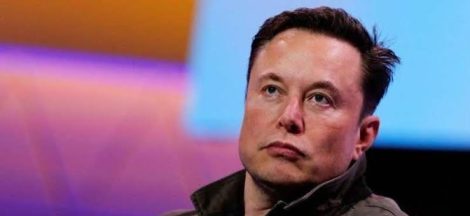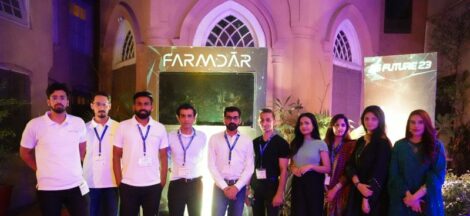Asma Salman Omer’s dream of helping those around her find the right medical care inspired her to build Marham, a digital healthcare platform in Pakistan that allows patients to find the right doctors and other medical care specialists in Lahore, Islamabad and Karachi.
Along with Asma, nine other passionate entrepreneurs traveled to Shanghai from across Asia-Pacific to highlight to the world how their idea will have an impact on the global community. These 10 startup founders presented their ambitious projects at the first-ever Google for Entrepreneurs Demo Day in Asia, and impressed us all with their technological innovations. Asma made such a big impact that she was given the Audience Choice award by the crowd in Shanghai. But based on all the other presentations that I heard, I believe there’s a bright future for startups in every part of Asia.
See also: Pakistani startup wins Audience Choice Award at Google Demo Day Asia in China
During my 10 years at Google supporting entrepreneurs, a common question I get is what the perfect formula for a successful startup is. While there’s no way to predict if an idea will make it big, there are a few themes that startups should consider if they want to succeed. I like to summarize them in three keywords: Diversity, Digital and Dreaming Big.
Let’s start with Diversity . To tackle the world’s biggest problems, we need to look at them from as many angles as possible. At Demo Day Asia, founders from 10 different territories in Asia came together. Among them were three female entrepreneurs, each of them pioneering new ways of using technology to solve big issues. Besides Asma, Cate Hull of Freight Exchange in Australia also told the Demo Day audience about how she’s leveraging artificial intelligence for a new approach to transport logistics. And Hitomi Uematsu, the founder of Sky Magic in Singapore is making cities smarter from the air, using synchronized drones to drive urban transportation and mapping solutions.
When companies have diverse teams, they have diverse perspectives. These different perspectives are needed to understand and come up with effective solutions for problems that may be unfamiliar in a founder’s experience. And it’s particularly crucial when it comes to supporting underserved consumers. Johan Wong of Origami Labs in Hong Kong was acutely aware of the obstacles faced by visually impaired people because his father is one. On stage, Johan presented Orii, a ring with an in-built voice assistant that provides assistance for people who can’t see screens.
The second D is for Digital . Every business should be a digital business, no matter if it’s small or big, traditional or tech-forward. But it can be harder for small businesses and traditional industries to figure out how to take advantage of technology. The startups that succeed are the ones that set out to help other businesses around them. Startups play a key role in devising locally relevant solutions for their industries or countries. At Demo Day Asia, Swingvy got our attention with its project to help Southeast Asian small and mid-sized businesses in their digital transformation, by providing affordable and easy to use tools that also work on mobile devices.
Founders also need to keep their fingers on the pulse of digital trends in technology. All our Demo Day Asia finalists were already developing for a mobile-first and increasingly mobile only world. But as the fourth industrial revolution starts to shape the way we live and work, startups have the responsibility of ensuring that new technologies are made accessible for entire industries. Andri Yadi, the founder of DycodeX is revolutionizing agriculture in Indonesia by using the Internet of Things and artificial intelligence to help cattle-farmers monitor their herds’ health; and Apurv Anand created SigTuple in India to support the Indian healthcare system with an AI platform that helps doctors analyze medical data and support diagnoses. Apurv also won the Judges’ Favorite Award at Demo Day for his bold and exciting project to change the face of healthcare.
That brings us to the final D, Dreaming big . To quote Google’s founder Larry Page, “if you’re not doing some things that are crazy, then you’re doing the wrong things.” Don’t found a startup just for the sake of having one. Think about what you’re passionate about solving in the world. Aim big, think about what’s going to continue motivating you for the next 10 years, and then go deep into your mission. Johan’s ring is being used in Japan, Europe and United States; and Hitomi’s drones have flown over Mt. Fuji as well as Dubai. Startups need to think global from day one. To foster this mindset, every startup in our Google For Entrepreneurs network can freely access any of our partner hubs and Campuses around the world.
Diversity, digital and dreaming big are all intertwined. You can’t succeed globally if you don’t solve for a diverse range of users, you can’t grow at scale without taking advantage of new digital technologies, and you can’t achieve your best if you don’t dream big. Think global, be inclusive, accept change. That’s how Google was born, and that’s what the next generation of entrepreneurs need to look at. We’re here to empower these passionate, exceptional people to launch and nurture the next big idea.
About Author: Bradley Joseph Horowitz is an American entrepreneur and internet executive. He is Vice President at Google.





 Samsung Galaxy A7 ‘Triple Camera Phone’ Launched in Pakistan
Samsung Galaxy A7 ‘Triple Camera Phone’ Launched in Pakistan